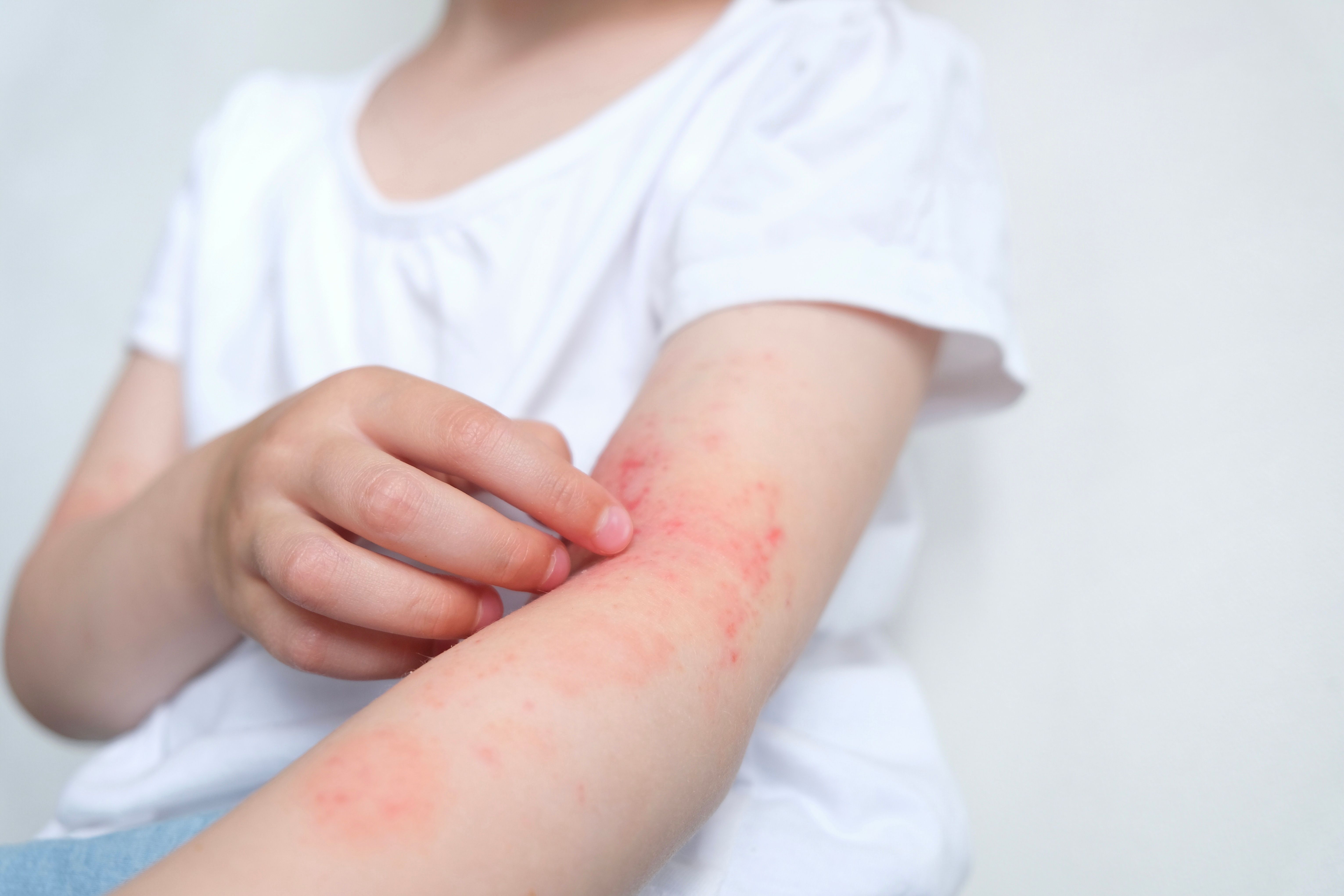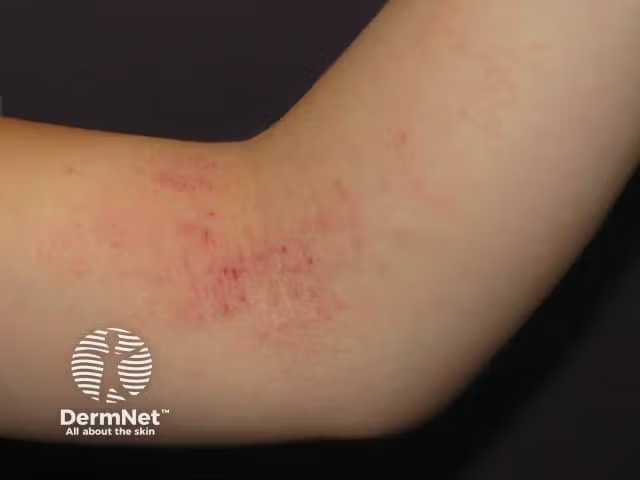- Case-Based Roundtable
- General Dermatology
- Eczema
- Chronic Hand Eczema
- Alopecia
- Aesthetics
- Vitiligo
- COVID-19
- Actinic Keratosis
- Precision Medicine and Biologics
- Rare Disease
- Wound Care
- Rosacea
- Psoriasis
- Psoriatic Arthritis
- Atopic Dermatitis
- Melasma
- NP and PA
- Skin Cancer
- Hidradenitis Suppurativa
- Drug Watch
- Pigmentary Disorders
- Acne
- Pediatric Dermatology
- Practice Management
- Prurigo Nodularis
- Buy-and-Bill
News
Article
Disease Severity and Age Can Affect Impact of AD
Author(s):
A study out of Japan found the burden on patients with atopic dermatitis and their caregivers can increase with age and disease severity.
Image Credit: © Марина Терехова

A recent study out of Japan evaluated the psychosocial and physical burden of atopic dermatitis (AD) on pediatric and adolescent patients and their caregivers. Researchers found the impact of AD increased with age, with the disease having impact on sleep, social relationships, and emotional stress for both the patient and the caregiver.1
Background
The study stated that guidelines and indications for approved AD drugs vary across countries, highlighting the importance of gathering regional data when informing regulations and country-specific needs. In Japan, treatment for patients with AD depends on disease severity,2 which researchers wrote is assessed using the Eczema Area and Severity Index (EASI) and Investigator Global Assessment (IGA), with patients reporting burden using the patient-oriented eczema measure (POEM) and either the Dermatology Life Quality Index (DLQI) or the Children's Dermatology Life Quality Index (CDLQI) for patients under 16 years of age.
Methods
Research data was drawn from the Adelphi Pediatric AD Disease Specific Programme (DSP), a cross-sectional survey of physicians and their patients conducted in Japan between July and December 2022. Patient demographics, clinical characteristics, disease burden, and current/previous therapies were provided to the study by physicians. Patients and/or caregivers reported perceived disease severity and impact of AD, including the Children's Dermatology Life Quality Index (CDLQI) and Dermatitis Family Impact questionnaire (DFI).
Results
Overall, 55 physicians (n = 46 dermatologists; n = 9 allergists) provided data to the study for 537 AD patients aged 17 and younger. Researchers found that physician-reported current AD severity was mild (for 19.5% of patients), moderate (46.1%), and severe (34.4%). Mean and standard deviation (SD) of overall scores were:
- CDLQI – 9.3 (6.3)
- POEM – 8.3 (6.8)
- DFI – 11.7 (7.2)
Researchers reported finding a correlation between age and higher patient and/or caregiver-reported CDLQI scores, which increased by 0.543 points per year of age (P = 0.01). The study also found that patients with severe disease reported a more significant impact on quality of life (QoL) when compared to mild patients. Age was also found to be associated with higher caregiver-reported burden, with DFI scores increasing by 0.325 per year. Physician-reported impact on caregivers showed researchers that age was significantly associated with increased burden on sleep, daily activities, work, and mood, with disease severity also associated with impact across all factors.
Conclusions
Researchers found that increasing age and disease severity were associated with the increased impact of AD on patients and their caregivers. They discovered that older patients (aged 12 to 17 years) are more likely to have developed social and emotional awareness relative to younger patients (aged 0 to 11 years), leading to increased emotional, psychological, and social burden. The researchers noted that this is likely characteristic of visual aspect, which may increase the burden on psychosocial development.3 Overall, they found the impact on QoL was more significant with increasing age, demonstrating that the burden is not simply reflective of disease severity alone.
In Japan, new treatment therapies for AD, including dupilumab and baricitinib, were recently included in the 2021 guidelines for AD.4 Currently, the study noted dupilumab is the first and only treatment indicated for use in pediatric patients with moderate to severe AD. While dupilumab is approved across a wide age range, other treatments are not currently available for patients under 12 years of age.
The researchers hypothesized that disease control/modification through appropriate therapeutic intervention at a younger age may relieve the burden of pediatric AD on patients and their families. They noted that this indicated a need for new, efficacious treatments offering improved disease control for pediatric AD patients, which can be initiated at an earlier age to prevent patient and caregiver burden from progressing.
References
- Otsuka A, Wang C, Torisu-Itakura H, et al. Patient and family burden in pediatric atopic dermatitis and its treatment pattern in Japan. Int J Dermatol. https://doi.org/10.1111/ijd.17256
- Saeki H, Ohya Y, Furuta J, et al. English version of clinical practice guidelines for the management of atopic dermatitis 2021. J Dermatol. 2022;49(10):e315-e375. doi:10.1111/1346-8138.16527
- Lewis-Jones S. Quality of life and childhood atopic dermatitis: the misery of living with childhood eczema. Int J Clin Pract. 2006;60(8):984-992. doi:10.1111/j.1742-1241.2006.01047.x
- Saeki H, Ohya Y, Furuta J, et al. Executive summary: Japanese guidelines for atopic dermatitis (ADGL) 2021. Allergol Int. 2022;71(4):448-458. doi:10.1016/j.alit.2022.06.009






